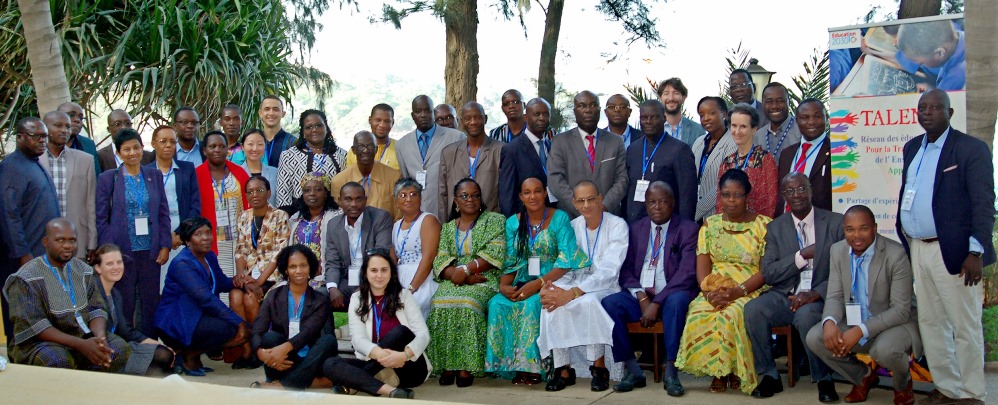Large-scale learning assessments: 18 countries trained to improve the use and dissemination of data on learning
The Teaching and Learning: Educators' Network for Transformation (TALENT) in collaboration with IIEP Pôle de Dakar and with the support of the Global Partnership for Education (GPE) organized a four-day (27-30 November) regional capacity-building workshop in Dakar on the reporting, dissemination and effective use of large-scale learning assessments.

This training has enabled education experts from 18 African countries to gain a deeper understanding of the relevance of large-scale learning assessments and their role in ensuring the quality and equity of the education system.
About 40% of sub-Saharan African countries have engaged in regional and/or international learning assessment programs. At least half of them have conducted a national learning assessment (UIS, 2016).
Despite the large amount of data on learning outcomes provided by these assessments, there is no evidence that the lessons learned from these assessment programs have been translated into concrete actions by policy makers. This is reflected in the low level of learning that persists in the region, where 60% of schoolchildren do not acquire minimum language and mathematics skills by the end of primary education (UNESCO, 2015).
During this workshop, several experts discussed on the issue in relation to Sustainable Development Goal 4 (SDG4) and Education 2030 agenda, but also on best practices for developing evidence from large-scale learning assessments.
Satya Brink, international expert on this topic, stated that large-scale learning assessments (LSLAs) should not be used alone, but together with other data to ensure their reliability and credibility.
"Policy and programmatic recommendations should answer questions that decision-makers want to know, not what you want to tell them," she said, adding that these recommendations” should be based on solid evidence and take into account the amount of effort required and the time it takes before the potential impact can be measured.”
She also recalled that each country is committed to monitoring educational progress towards the achievement of the SDG4and for this reason, it is key to use large-scale learning assessments in order to be able to provide an accurate picture of the achievements in the field of education, particularly in terms of learning, inclusion and quality of education.
Communication and dissemination of assessment results should be guided by an effective strategy and incorporate a range of approaches to meet the needs of a varied audience, according to Sally Robertson, a researcher with the International Survey Division of the Australian Council for Educational Research (ACER).
Robertson said that “the main objective of all reports should be to promote understanding of evaluation and its results in response to the strategic objectives of the evaluation program.”
The results of the assessments may not easily suggest specific policy options or strategies that decision-makers should adopt in response to the problems identified, hence the importance of involving stakeholders in the formulation of recommendations.
During the practical exchanges, delegates of the participating countries had the opportunity to discuss in depth the common challenges faced at country level regarding the analysis and dissemination of assessment results and their utilization in the education planning cycle.
This meeting thus enabled participants to understand that when learning assessments are conducted effectively, reporting and disseminating the results of large-scale assessments helps communities and decision-makers to better interpret and use evaluation data to review and improve their education policy.
